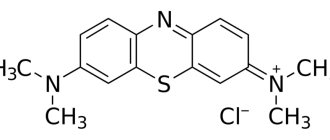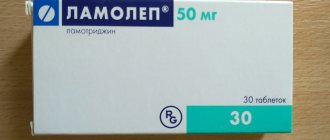Indications for use
It has antiemetic, sedative and antitussive effects. The reaction to external stimuli decreases, as does psychomotor agitation, affective tension, the feeling of fear is suppressed, and a weakening of aggressiveness is noted. Teraligen is used as a sleeping pill, but in a general sense it is not. Neuroleptics simply induce drowsiness and speed up the onset of sleep. And this must be taken into account in certain specialties.
Teraligen may induce drowsiness and accelerate the onset of sleep
That is, the pharmacological use of Teraligen is quite wide. The medicine is available in the form of dark pink, film-coated tablets. It contains 5 mg of alimemazine tartrate.
Teraligen is effective for neurotic disorders due to trauma, intoxication, vascular disorders in combination with autonomic disorders, anxiety and mild depressive disorders.
This medicine is used to treat the following diseases:
- somatized mental disorders;
- states of excitement and anxiety against the background of somatic pathologies;
- sleep disorders of various origins;
The drug is used to treat mental disorders and depression
- psychopathy with asthenic and psychoasthenic disorders;
- anxiety-depressive conditions within the framework of borderline endogenous and vascular diseases;
- senestopathic depression;
- allergic reactions (symptomatic treatment);
- neuroses and neurosis-like conditions of endogenous and organic origin with a predominance of senestopathic, hypochondriacal, phobic and psychovegetative disorders.
Instructions for use of the drug Teraligen
Teraligen is taken orally, distributing the daily dose 3-4 times. It should be remembered that the effect of the drug begins 15-20 minutes after administration and lasts about 6-8 hours. Only a doctor can make a diagnosis and prescribe a dosage of medication! Do not self-medicate, it is dangerous.
Recommended dosage for adults:
- For difficulty falling asleep: 5-10 mg 1 time per day, 30 minutes before bedtime;
- For anxiety: 20 mg 3-4 times a day;
- For psychotic conditions: 50-100 mg 4 times a day.
Recommended dosage for children over 7 years of age:
- For difficulty falling asleep: 2.5-5 mg 1 time per day, 30 minutes before bedtime;
- For allergies: 2.5-5 mg 3-4 times a day;
- For anxiety: 5-10 mg 3-4 times a day;
- For psychotic conditions: 15 mg 4 times a day.
Effects of the drug
Teraligen, the instructions for use emphasize this, has the following properties:
- Antihistamines.
- Antispasmodic.
- Antiemetic.
- Sedative.
- Sleeping pills.
- Antitussive.
In addition, the medicine provides:
- Serotonin-blocking effect, which eliminates the occurrence of unpleasant symptoms against the background of increased nervousness: muscle spasms, increased sweating, tremors, etc.
- Alpha-adrenergic blocking effect, which allows normalizing blood flow.
Teraligen may have another name, alimemazine, the instructions for use indicate this. A special feature of the drug is its low antipsychotic activity. This means that the drug is ineffective in the treatment of acute psychotic conditions. Due to its good tolerability, it can be used to treat children of all ages.
The drug Teraligen, instructions and reviews indicate this, is completely absorbed into the gastrointestinal tract in the shortest possible time after taking the tablets. The maximum amount of active substance in the blood is observed after a couple of hours. The effect appears within a quarter of an hour. The duration of action of the medicine lasts for 6-8 hours.
Dosage for adults is 10-40 mg/day (maximum amount 500 mg/day), and for children - 7.5-25 mg/day. Divide the dose into 3-4 doses.
Contraindications
Teraligen is prohibited for use in the following cases:
- parkinsonism;
- myasthenia gravis;
- Reye's syndrome;
- hypersensitivity;
- simultaneous use of MAO inhibitors;
- pregnancy;
- breastfeeding period;
- angle-closure glaucoma;
- prostatic hyperplasia;
- severe liver and kidney diseases;
- children's age up to 7 years.
Teraligen is prohibited during pregnancy
Also, the drug is prescribed with caution when:
- suppression of bone marrow function;
- epilepsy;
- arterial hypotension;
- chronic alcoholism;
- jaundice;
- predisposition to urinary retention;
- open-angle glaucoma;
- obstruction of the bladder neck.
Indications and contraindications
Teraligen, the instructions for use indicate this, is effective for various mental disorders. They are characterized by many symptoms that worsen the quality of life: headaches, dyspeptic problems, emotional tension. The medicine removes the state of irritability and anxiety. It also helps normalize sleep.
In addition, teraligen valente, the instructions for use indicate this, is used for the following pathologies:
- Depressions.
- Psychopathy.
- Allergic reactions.
- Neuroses.
A contraindication to taking the drug is hypersensitivity to the components in the composition of the drug. Teraligen is prohibited for use when diagnosing the following severe pathologies:
- Parkinsonism, the symptom of which is a strong, continuous tremors.
- Myasthenia gravis associated with severe muscle fatigue.
- Reye's syndrome, which is characterized by brain damage and liver degeneration.
—
The drug is not prescribed during pregnancy, since it has been confirmed that the active substance can cause fetal pathologies. It is also impossible to treat with the drug during lactation. The active substance passes into breast milk and can cause various problems in the baby's health. In cases where it is not possible to use safe analogues, the doctor assesses the likely risks of achieving the desired beneficial medicinal effect for a given drug.
Teraligen is contraindicated for use under the age of 7 years. The instructions also indicate other contraindications, such as:
- Angle-closure glaucoma.
- Liver and kidney pathologies in the acute stage.
- Prostatic hyperplasia.
- Alcohol withdrawal syndrome.
The drug should not be used simultaneously with MAO inhibitors, which are prescribed to combat depressive conditions. The drug is prescribed with caution for epilepsy. In special cases, it is used for jaundice and confirmed chronic alcoholism.
The instructions for use emphasize that it is strictly forbidden to use Teraligen in combination with alcohol. Against this background, there are risks of nightmares, confusion and severe emotional overexcitation with dangerous consequences. In addition, the severity and intensity of the underlying pathology increases.
Side effects
Judging by the clinical data, patients taking Teraligen tablets tolerate the drug well. Therefore, the occurrence of side effects is rare. But if they do exist, then the list of side effects is as follows:
- From the genitourinary system: urinary retention, bladder atony.
- From the respiratory system: increased viscosity of bronchial secretions, dryness of the mucous membrane of the nose and pharynx.
- Allergic reactions: urticaria, photosensitivity, allergic dermatitis, Quincke's edema.
- Laboratory indicators: false positive pregnancy test result.
- From the senses: decreased visual acuity, ringing and tinnitus. From the blood vessels and heart: arterial hypotension, cardiac arrhythmia, dizziness.
- From the digestive tract: dry mouth, intestinal atony, anorexia, constipation.
- From the nervous system: asthenia, drowsiness, fatigue, paradoxical reactions (including anxiety, nightmares, irritability and agitation), confusion. In addition, it is possible to develop increased frequency of sleep apnea, increased seizure activity, as well as extrapyramidal disorders (including akathisia, hypokinesia and tremor).
- Others: increased sweating, decreased bone marrow function, muscle relaxation.
In addition, alimemazine can distort the results of skin prick tests for various allergens. Therefore, if you are having an allergy test, you should stop taking the drug no later than 72 hours in advance.
Teraligen tab 5mg N50 (Valenta)
As a sedative (calming), anxiolytic (anti-anxiety) and a means of improving sleep: - dementia (including dementia due to epilepsy), occurring with manifestations of psychomotor agitation, anxiety affect (as part of combination therapy); - organic anxiety disorder (as monotherapy or as part of combination therapy); - schizophrenia (with a predominance of neurosis-like disorders, as part of combination therapy); - mood disorders (affective disorders) - as part of combination therapy - generalized anxiety disorder (as part of combination therapy); — obsessive-compulsive disorder (as part of combination therapy); - reaction to severe stress and adaptation disorders (acute reaction to stress, post-traumatic stress disorder, unspecified reaction to severe stress, other reactions to severe stress) - as part of combination therapy; — dissociative (conversion) disorders (as part of combination therapy); - somatoform disorders (somatization disorder, undifferentiated somatoform disorder, hypochondriacal disorder, somatoform dysfunction of the autonomic nervous system, persistent somatoform pain disorder, unspecified somatoform disorder, other somatoform disorders) - as part of combination therapy for severe anxiety or when standard therapy is ineffective: - unspecified disorder autonomic nervous system, other disorders of the autonomic nervous system (as part of combination therapy); - anorexia nervosa (as part of combination therapy); - emotionally unstable personality disorder (impulsive and borderline types) - as part of combination therapy; - hysterical personality disorder, anxious (withering, avoidant) personality disorder (as part of combination therapy); - persistent personality change after experiencing a disaster (as part of combination therapy); - hyperkinetic behavior disorder (as part of combination therapy); - behavioral disorder limited to the family (as part of combination therapy when standard therapy is ineffective); - non-social behavior disorder (in the form of monotherapy or as part of combination therapy); - anxiety, agitation and other symptoms and signs related to the emotional state (as part of combination therapy); - other neurotic disorders (neurasthenia, unspecified neurotic disorder) - as part of combination therapy; - insomnia of non-organic etiology (as part of combination therapy when standard therapy is ineffective); - emotional disorders whose onset is specific to childhood (phobic anxiety disorder in childhood, social anxiety disorder in childhood, sibling rivalry disorder, unspecified emotional disorder in childhood, other emotional disorders in childhood ) - as part of combination therapy. As an antiallergic agent: - itching, regardless of location and etiology (itching of the anus, itching of the vulva, unspecified anogenital itching, itching with photocontact dermatitis and solar urticaria, dermatitis, eczema, urticaria, bites or stings of non-venomous insects or other non-venomous arthropods, chicken pox , measles, Hodgkin's disease, diabetes mellitus, herpes zoster) as monotherapy or as part of combination therapy; - asthma, hay fever, whooping cough (as part of complex therapy as an antiallergic agent to relieve cough, shortness of breath and asthma attacks); - unspecified allergy (as monotherapy or as part of combination therapy).
Analogs of the drug Teraligen
Teraligen has no analogues for the active substance - alimemazine tartrate. Substitutes that have a similar pharmacological effect belong to the group of neuroleptics.
Remember that the attending physician must prescribe medications, as well as substitutes!
Remember that the attending physician prescribes medications or their analogues
Klopiksol
Clopixol tablets contain zuclopenthixol hydrochloride. Although this is in some sense a substitute for Teraligen, and they are similar in pharmacological action, Klopixol has a stronger antipsychotic effect. Thanks to this, Clopixol is more often used to treat serious mental health disorders: schizophrenia, hallucinations, paranoia, manic states, dementia.
Clopixol is contraindicated in comatose states, acute poisoning by barbiturates, alcohol, opiates, pregnancy and breastfeeding. Clopixol, unlike Teraligen, is better tolerated by patients. Side effects are similar to Teraligen, but occur even less frequently and are not as pronounced.
Conapax
It is also an antipsychotic drug based on thioridazine hydrochloride. Sonapax has a more pronounced antihistamine and anticholinergic effect compared to other neuroleptics. Indicated for use in those cases described in the instructions for Teraligen. But it can be used to treat children from 4 years of age. Conapax is contraindicated in comatose states, acute depression, porphyria, pheoxomocytoma, hematopoietic disorders, in the first trimester and in the last week of pregnancy, during lactation tions. Sonapax is well tolerated, it can be taken by children, and its price is lower than Teraligen.
Chloprothixene Zentiva
The main active ingredient of Sanofi Chloprothixene tablets is chlorprothixene. Medicines are indicated for the treatment of: psychoses, schizophrenia, depressive states, mental disorders during menopause and for diseases of the brain (traumatic brain injuries, enc ephalopathy), alcoholic delirium, sleep disorders caused by psychosomatic and neurotic disorders, insomnia due to burns, skin diseases, accompanied by itching. Contraindications for use: hypersensitivity, coma, poisoning with drugs that depress nervous activity. When taking tablets, in addition to the side effects characteristic of Teraligen, disorders of the mammary glands and reproductive organs are possible: galactorrhea, amenorrhea, gynecomastia, c decreased libido.
Pipolfen
This is a Hungarian analogue of Teraligen based on promethazine hydrochloride. It is often used as a sedative for postoperative pain (in combination with analgesics), allergic diseases and other cases. Pipolfen has a fairly large list of contraindications and age restrictions, so before treatment, be sure to consult a specialist and read the instructions.
Teraligen and alcohol
The combination of drugs and alcohol does not go away without leaving a trace; it can often lead to very serious consequences. You should be especially careful when taking psychotropic medications like Teraligen.
Teraligen should not be taken with alcohol!
The instructions attached to the medication clearly indicate that it is strictly forbidden to take it with alcohol, since it can only increase the severity and intensity of the underlying pathology.
The annotation for the drug indicates the side effects that occur when combining Teraligen + Alcohol:
- irritability and anxiety, nightmares and emotional overexcitement;
- drowsiness and excessive fatigue, lethargy;
- confusion;
- visual impairment, manifested by blurred perceived image;
- disorders such as tremor, an internal need to constantly move, or, conversely, a condition associated with insufficient movement activity;
- frequent cases of respiratory arrest during night sleep;
- extraneous sounds in the ears, frequent dizziness and fainting, decreased blood pressure;
- dryness of the mucous membranes in the mouth, nasal cavity, pharynx, lack of appetite, various allergic manifestations;
- tachycardia disorders, hyperhidrosis, disorders in bone marrow hematopoiesis;
- urinary retention;
- lack of normal tone in the muscular system of the gastrointestinal tract, bladder, as well as muscle relaxation, etc.
Remember that antipsychotic drugs have a strong effect on the central nervous system. Only a doctor can prescribe antipsychotics. In addition, a prescription is required to purchase such medications.




